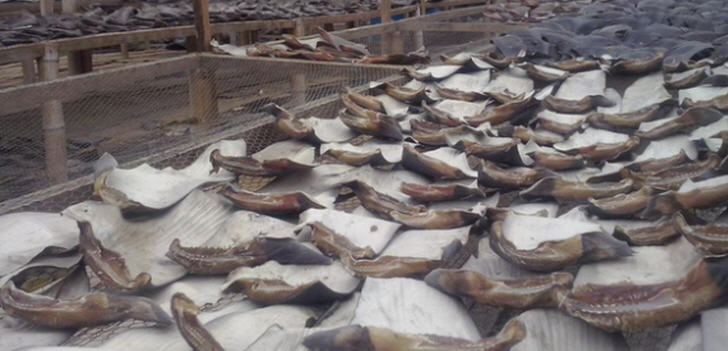According to the marine conservation organization Oceana, Peru is the world’s largest exporter of shark fins.
At a market in northern Peru, fishermen and traders trade mutilated sharks loaded onto motorized rickshaws.
Much of the meat is consumed locally, but the severed fins are destined for other countries: Mainly China.

According to marine biologists, this lucrative trade threatens shark species off the coasts of Peru and neighboring Ecuador.
In just over a decade, Peru has nearly tripled exports of shark fins – both legal and illegal – reaching a record 400 tonnes in 2021, according to Oceana.
Last year, that amount dropped to about 339 tonnes as trade is more tightly monitored globally.
In Peru, the catch and sale of legally caught shark fins are allowed.
However, there are much larger shark populations off the coast of Ecuador, where such activities are prohibited.
According to Alicia Kuroiwa, a Peruvian marine biologist and shark expert at Oceana, three-quarters of shark fins exported from Peru originate in Ecuador.
They are smuggled illegally across the border in refrigerated trucks.
Many arrive in the Peruvian border town of Tumbes, where there is a market for shark meat and fins.
Fishermen may claim the sharks were caught unintentionally in the nets so they could be sold.
Marine biologist Adriana Gonzalez said indiscriminate fishing off Peru and Ecuador threatens species such as the blue shark, mako shark, and hammerhead.
Under the name “tolo,” various shark species in Peru are regularly consumed in the popular dish ceviche.
However, the fins are removed and exported to Asia.
“The Chinese are looking to all markets because they can’t supply themselves, and in Peru, there is a very strong trade route for fins,” Gonzalez said.
Last November, a global agreement on trade in endangered species agreed to more tightly regulate the trade in requiem sharks (order of ground sharks), which are fished mainly for their fins for shark fin soup.
This includes some, though not all, of the sharks caught off the Peruvian and Ecuadorian coasts.
However, in a bay in the fishing town of Zorritos in Tumbes, the fishermen who make their living catching sharks have another concern.
Climate change has led to even fewer sharks in the fishing grounds.
“They have disappeared because the waters are warm again,” says fisherman Edgardo Cruz.
News Peru, English news Peru, Peruvian environment

